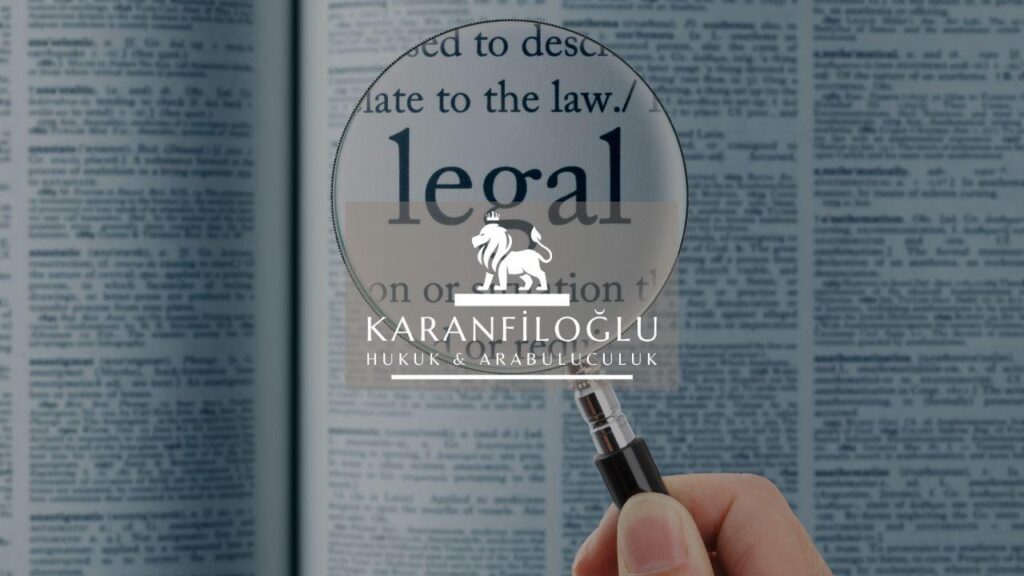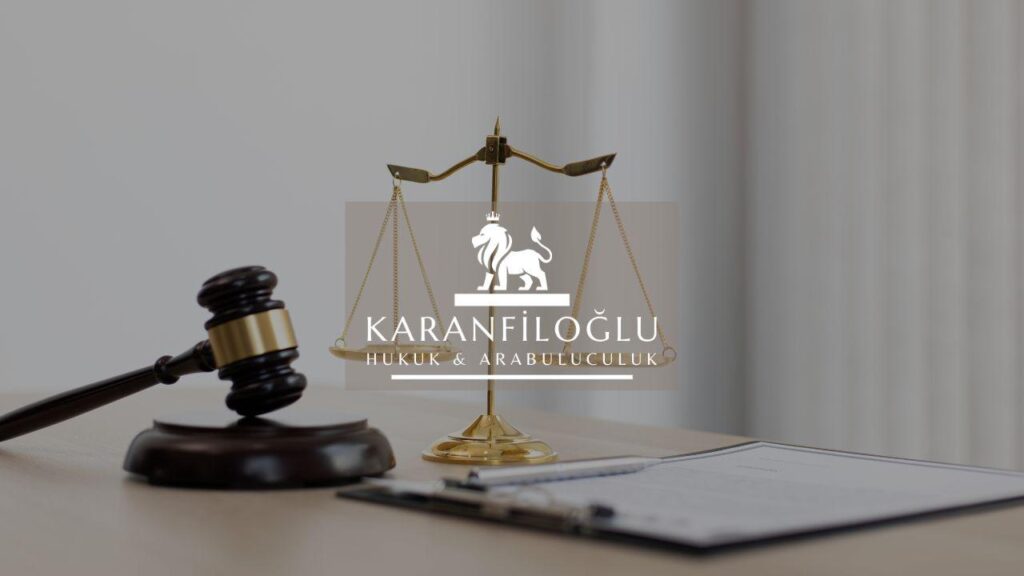Navigating a child custody case in Turkey requires a comprehensive understanding of the country’s Family Law and the relevant statutory provisions. According to the Turkish Civil Code (Law No. 4721), particularly Articles 337 to 351, the determination of child custody largely focuses on the best interests of the child. Whether you are seeking sole or joint custody, or addressing issues related to visitation rights, it is essential to familiarize yourself with the criteria the courts use to assess parental suitability and the stability offered to the children involved. At Karanfiloglu Law Office, our seasoned legal professionals are adept at guiding clients through this intricate process, ensuring that all legal requirements are met and advocating vigorously for the welfare of your child. Our expertise in handling family law cases allows us to provide tailored legal strategies that align with your objectives while adhering to the procedural and substantive standards dictated by Turkish law.
Legal Framework and Key Considerations in Turkish Child Custody Cases
The legal framework for child custody cases in Turkey is primarily governed by the Turkish Civil Code (Law No. 4721), especially Articles 337 to 351. These statutes outline the court’s approach in determining the most suitable parent for custody based on the child’s best interests. Factors such as the emotional ties between the child and each parent, the parents’ ability to provide for the child’s physical, emotional, and educational needs, and the overall stability and living conditions offered are critically assessed. Additionally, in accordance with Article 182, the courts also consider the child’s own opinions if they are of sufficient age and maturity. Understanding these key elements is crucial for presenting a strong case, and at Karanfiloglu Law Office, we ensure that these factors are meticulously addressed to safeguard your child’s welfare during custody proceedings.
In addition to the general principles outlined in the Turkish Civil Code, specific situations such as issues of parental neglect or abuse, relocation, and changes in circumstances are also considered crucial by the courts. Article 183 of the Turkish Civil Code emphasizes the importance of protecting the child from any form of neglect or harmful behavior by either parent. If evidence suggests that a parent is unable to provide a safe and nurturing environment, this significantly impacts custody decisions. Furthermore, under Article 337, when a parent seeks to relocate with the child, the courts must evaluate the potential impact on the child’s well-being and relationships with the non-relocating parent. The court’s paramount concern remains the child’s best interests, making it essential for parents to gather comprehensive evidence and present a clear, well-supported case. At Karanfiloglu Law Office, we are experienced in handling these intricate facets of child custody cases, ensuring that all legal bases are comprehensively covered.
Successfully navigating a child custody case in Turkey also requires a strategic approach to mediation and court proceedings. According to Article 184 of the Turkish Civil Code, the courts may recommend or, in some cases, mandate mediation to help resolve disputes amicably before proceeding to litigation. This not only helps in reducing the emotional strain on the child but also encourages parents to find a mutually agreeable solution. Effective mediation can significantly influence the court’s final decision by demonstrating a parent’s willingness to cooperate in the child’s best interests. Additionally, the procedural aspects, such as submitting relevant documentation, expert psychological evaluations, and witnesses, should not be underestimated. At Karanfiloglu Law Office, our thorough preparation and attention to detail aim to position our clients favorably in both mediation and courtroom settings, ultimately striving to secure a custody arrangement that promotes the child’s overall well-being and stability.
Essential Steps for Building a Strong Child Custody Case in Turkey
When building a strong child custody case in Turkey, the first essential step is to gather and organize all relevant documentation that supports your parental capability and involvement in the child’s life. This includes school records, medical reports, proof of financial stability, and any other evidence that demonstrates your capacity to provide a stable and nurturing environment (Article 338 and Article 339 of the Turkish Civil Code). Additionally, it is advisable to keep a detailed log of your interactions with your child, including visitation schedules and participation in their daily activities, as this can be instrumental in showcasing your commitment and reliability as a parent. At Karanfiloglu Law Office, we assist our clients in compiling the necessary documents to meet the rigorous standards set forth by Turkish courts, ensuring that every aspect of your parental suitability is effectively highlighted.
The next essential step in building a strong child custody case is securing reliable witnesses who can attest to your parenting skills and the relationship you have with your child. Witnesses can include family members, friends, teachers, or neighbors who have observed your interactions and can provide unbiased testimonials regarding your dedication and suitability as a parent. This testimonial evidence can be crucial, especially when corroborating your documentation and personal logs, as outlined in Article 340 of the Turkish Civil Code. Furthermore, expert reports from child psychologists or social workers may be requested by the court to offer a professional assessment of your child’s needs and the quality of care you provide. At Karanfiloglu Law Office, we work diligently to identify and prepare credible witnesses, ensuring their statements are comprehensive and aligned with the legal criteria, thereby strengthening your overall custody case.
The final crucial step in fortifying your child custody case is to actively engage in court-mandated processes such as mediation or family counseling sessions, which are often encouraged under Article 341 of the Turkish Civil Code. Participation in these processes demonstrates your willingness to cooperate for the well-being of your child and to resolve conflicts amicably, showcasing your dedication to fostering a healthy co-parenting arrangement. Additionally, remaining composed and respectful throughout court proceedings can significantly influence the court’s perception of your character and parental fitness. At Karanfiloglu Law Office, we provide robust legal representation and support during these proceedings, guiding you on how to effectively communicate your intentions and exhibit the positive qualities that align with the best interests of your child. Our comprehensive approach ensures that you are well-prepared for every aspect of the custody battle, maximizing the likelihood of a favorable outcome.
Navigating Cross-Border Child Custody Disputes According to Turkish Law
Navigating cross-border child custody disputes in Turkey involves understanding both domestic and international legal frameworks. Under Turkish law, the Hague Convention on the Civil Aspects of International Child Abduction, to which Turkey is a signatory, plays a crucial role in disputes involving different jurisdictions. Articles 27 to 34 of the Turkish Civil Code regulate international child abduction and custodial matters, emphasizing the prompt return of the child to their habitual residence unless exceptions apply. Additionally, Turkish courts work closely with the Ministry of Justice’s Directorate General for International Law and Foreign Relations to address such cases efficiently and in accordance with international obligations. At Karanfiloglu Law Office, we provide expert guidance in navigating these complex proceedings, ensuring that our clients’ rights and the best interests of the child are safeguarded across borders.
When dealing with cross-border custody disputes, it is essential to gather and present adequate evidence to demonstrate a stable and nurturing environment for the child. Factors such as the child’s education, social connections, and emotional well-being are critically evaluated by the court. Under Turkish Civil Code articles 182 and 183, the court considers the child’s preferences and the ability of each parent to meet the child’s needs comprehensively. Furthermore, in circumstances where parental alienation or the risk of harm exists, the court may impose supervised visitation or other protective measures. Collaborating with experienced legal professionals, such as those at Karanfiloglu Law Office, ensures that all necessary documents, testimonies, and expert opinions are meticulously prepared to strengthen your case. This thorough preparation can significantly influence the court’s decision in a cross-border child custody dispute, providing a foundation for a favorable outcome that prioritizes the child’s welfare.
At Karanfiloglu Law Office, we understand that cross-border child custody disputes can be emotionally and legally challenging. Our experienced team is committed to guiding you through every step of the process, from initial filing to final judgment. We ensure comprehensive legal representation, including mediation and negotiation support, to help achieve amicable resolutions that prioritize the child’s best interests. Our familiarity with international treaties, such as the Hague Convention, and their application within Turkish jurisdiction, allows us to navigate the complexities of cross-border disputes effectively. We also maintain strong collaborations with international legal experts, ensuring that your case benefits from a global perspective while strictly adhering to Turkish legal standards. Trusting Karanfiloglu Law Office means entrusting your child’s future to dedicated professionals capable of securing a compassionate and judicious resolution to your cross-border custody conflict.
Disclaimer: This article is for general informational purposes only and you are strongly advised to consult a legal professional to evaluate your personal situation. No liability is accepted that may arise from the use of the information in this article.







